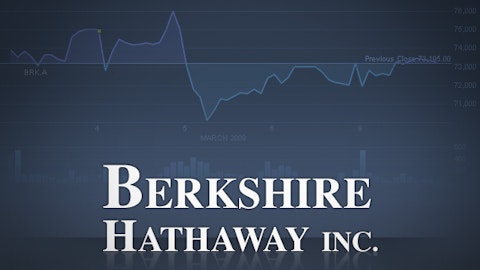Obamacare has become one of the most contentious pieces of legislation ever passed. It has created a huge rift in the U.S. between supporters who believe that the law will deliver on its promise to provide affordable care for millions of uninsured Americans, and opponents who believe that the law will lead to higher insurance costs and cause unintended consequences that will hurt American workers.
Amid all the controversy, it’s important to get the facts about Obamacare. To do so, health-care bureau chief Max Macaluso discussed the coming implementation of various parts of the Patient Protection and Affordable Care Act with Dan Caplinger, The Motley Fool’s director of investment planning and author of the special free report “Everything You Need to Know About Obamacare.”
Max Macaluso: Well, Dan, the debate continues on how the implementation of Obamacare will impact both individuals and stocks in the health-care sector, but I want to begin with a broad question that some people might be confused about. When does “Obamacare” actually start? Is it October or January?
Dan Caplinger: One of the most confusing parts of Obamacare has been that various pieces of the overall program take effect at different times. For instance, many people are focused on the coming Oct. 1 start of the open enrollment period for the health-insurance marketplace, which will include both state-based health-insurance exchanges as well as the broader federal program. But the actual coverage provided under these policies won’t take effect until January.
Max: So Obamacare coverage will actually start at the beginning of 2014, but some parts of the act have actually already been rolled out.

Dan: That’s right. For instance, tax provisions implementing a surcharge of 0.9% to 3.8% on high-income earners will be reflected on this year’s tax returns. Since 2011, UnitedHealth Group Inc. (NYSE:UNH), WellPoint, Inc. (NYSE:WLP), and other health-insurance companies have had to spend at least 80% to 85% of the premiums they collect toward health-care services and quality improvement. Those that haven’t have had to return excess premiums to customers in the form of rebates. Other early-adopted Obamacare provisions included allowing young adults age 25 or younger to remain on their parents’ insurance.
Max: Given that insurers are now held to these minimum medical loss ratios, why are shares of UnitedHealth Group Inc. (NYSE:UNH) and WellPoint, Inc. (NYSE:WLP) up 100% and 56%, respectively, since the start of 2011?
Dan: UnitedHealth Group Inc. (NYSE:UNH), WellPoint, Inc. (NYSE:WLP), and many other health-insurance companies have enjoyed extremely strong revenue and earnings growth. Rising membership numbers have helped the companies get more business even before the Obamacare exchanges take effect, and many investors hope that an influx of new policyholders will produce even faster growth. But an even more important boost to profitability has come from Americans generally spending less on health care, which has helped WellPoint, Inc. (NYSE:WLP) and UnitedHealth Group Inc. (NYSE:UNH) rein in their own costs and boost their results.
Max: Oct. 1 is just around the corner. How many states have decided to run their own exchanges?
Dan: Based on information from the federal government’s health-care website, residents in 16 states plus the District of Columbia will have their own health-insurance marketplaces to serve them. In the other 34 states, residents will use the federal website to apply for coverage and enroll.
Max: Will the federal government be ready to start taking applications by the Oct. 1 start date?
Dan: Earlier this summer, the Government Accountability Office said that the federal marketplace was well behind schedule, raising concerns about whether it would meet the deadline. But the government made a deal in late July with eHealth, Inc. (NASDAQ:EHTH) to allow it to enroll Obamacare participants. That greatly improved the prospects for open enrollment beginning on time without hitches, and it sent eHealth, Inc. (NASDAQ:EHTH) shares soaring almost 30% when the deal was announced.
Max: It looks like eHealth, Inc. (NASDAQ:EHTH) is clearly a company that has benefited from the ACA. Before we close, Dan, let’s shift our focus to a story that took the spotlight this week. We saw some surprising news from giants International Business Machines Corp. (NYSE:IBM) and Time Warner Inc (NYSE:TWX). Can you explain what happened with their retiree health-insurance benefits?
Dan: Both companies announced that they would stop providing direct health-insurance coverage through their own employer-sponsored health plans to retirees who are eligible for Medicare. Instead, they will provide money for those retirees to use to obtain their own insurance through private insurance exchanges. Both International Business Machines Corp. (NYSE:IBM) and Time Warner Inc (NYSE:TWX) emphasized the potential cost savings and greater choice of policy options for retirees, although some retirees believe that putting the onus on them to choose their own insurance is an undue burden that they shouldn’t have to bear.
Max: There are pros and cons here for the retirees being affected by these new plans, but how should investors look at this move?
Dan: Because IBM, Time Warner, and most of the other companies are still spending money on retirees’ health insurance, the immediate impact on their stocks should be minimal. In the long run, though, the move should help the companies manage their own health-related costs more effectively and avoid some of the uncertainty in future expenses that could reduce long-term earnings.
Max: Thanks, Dan.
The article Obamacare’s October Start Date Looms Large originally appeared on Fool.com and is written by Dan Caplinger.
Fool contributor Dan Caplinger has no position in any stocks mentioned. You can follow him on Twitter: @DanCaplinger. Max Macaluso, Ph.D. has no position in any stocks mentioned. The Motley Fool recommends UnitedHealth Group and WellPoint and owns shares of IBM and WellPoint.
Copyright © 1995 – 2013 The Motley Fool, LLC. All rights reserved. The Motley Fool has a disclosure policy.





